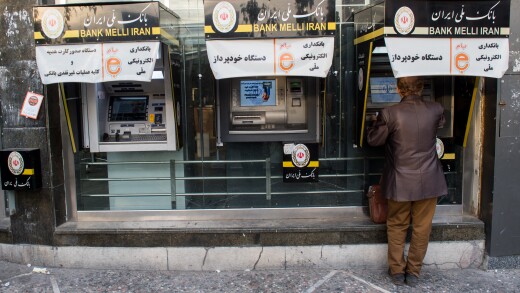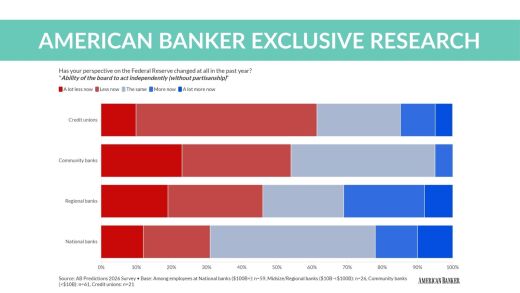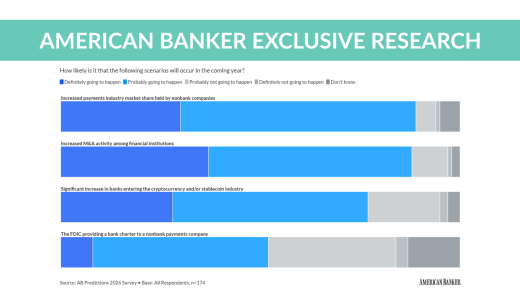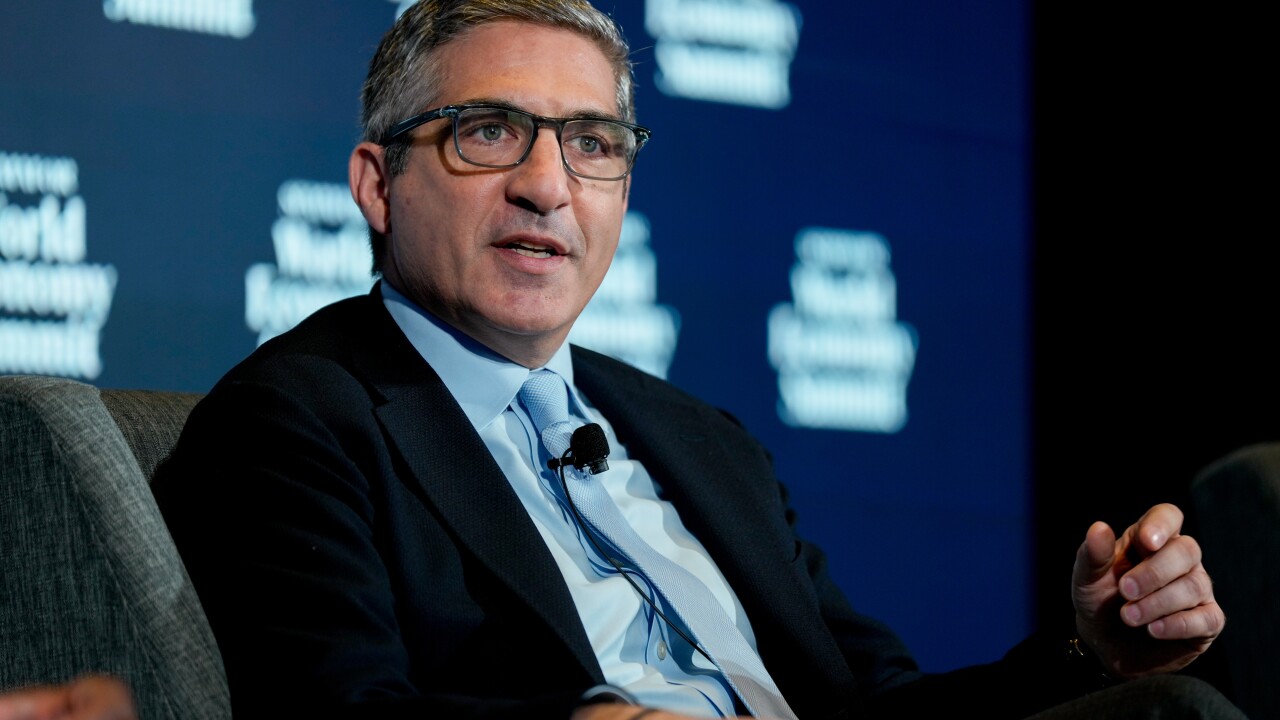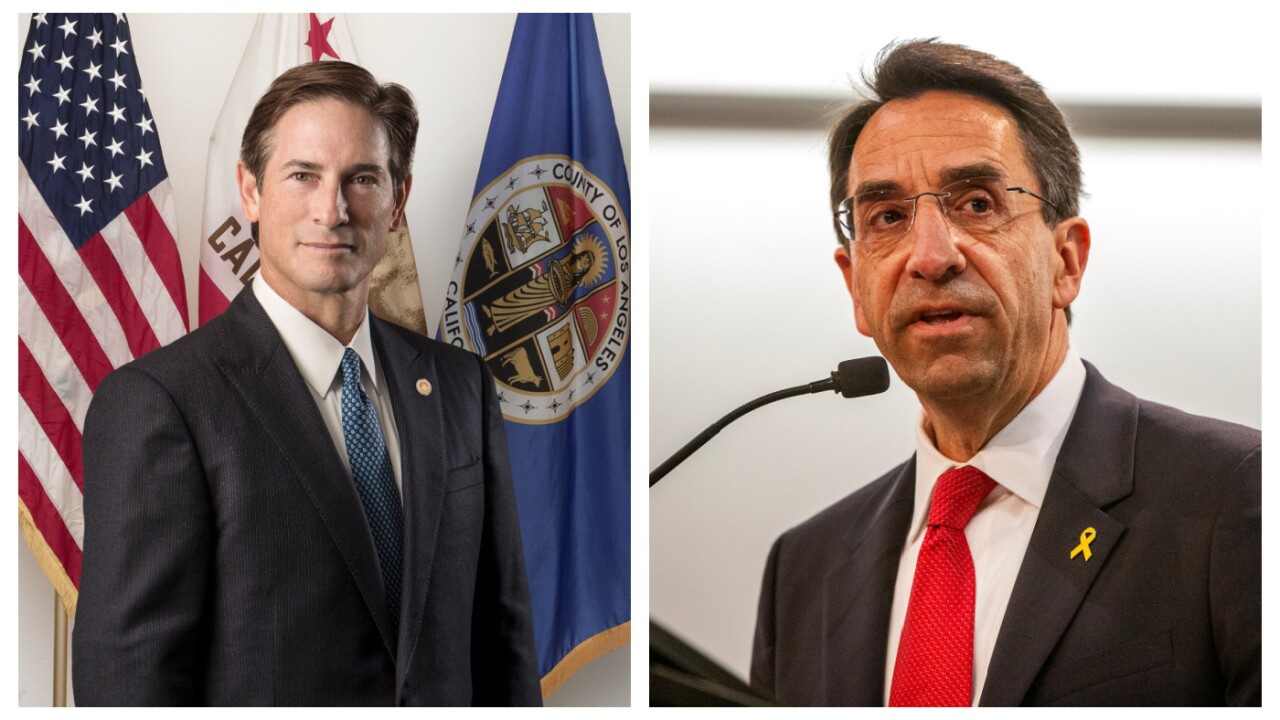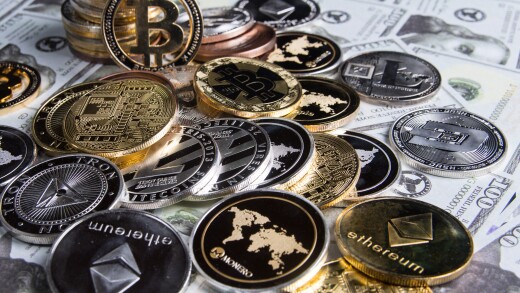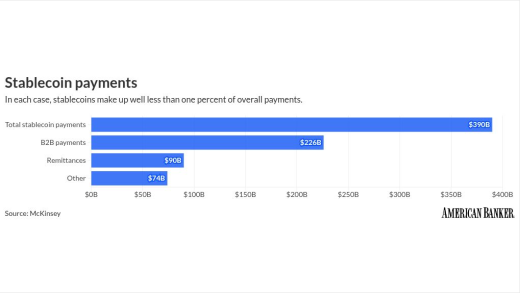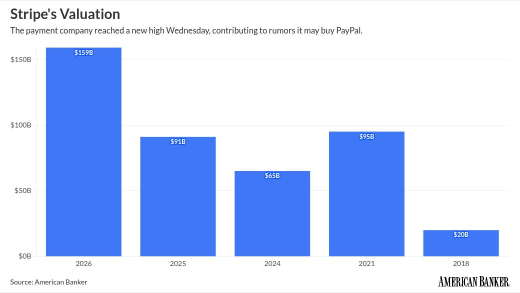Fifty years of sanctions has forced the Middle Eastern country to develop its own isolated financial system. But money has still found a way to move in and out of the country.
Research from American Banker finds that executives are under pressure from nonbank firms and are concerned about identity theft in 2026.
-
Block last week cut 40% of its staff and attributed the layoffs to artificial intelligence, leaving many to wonder whether Jack Dorsey's payments company was a bellwether for widespread AI-driven layoffs, or a one-off.
-
Recent reports from JD Power suggest that more customers choose payment alternatives to avoid surcharge fees.
-
If the company gets final approval, it will be the newest crypto firm to receive a charter in recent months.
-
The payments firm wants to issue a stablecoin called PAYO-USD, joining a wave of digital asset companies seeking federal bank charters.
-
Credit One Bank agreed to a $10.2 million settlement after almost five years of litigation with a group of California district attorneys. The suit alleged that the bank's vendors made harassing phone calls to borrowers.
- PaymentsDelivered Every WeekdayAn early-morning roundup of important headlines from the past 24 hours.
- TechnologyWednesday, ThursdayThe latest industry developments from digital banking to cybersecurity to AI.
- RegulationTuesday, ThursdayCoverage of the CFPB, Fed, FDIC, and Dodd-Frank.
- Best of the WeekFridayThe most important and widely read stories from the previous week.
The real value of stablecoins lies in their ability to provide instant and secure transfers of value. But, in a world where every company has a bespoke stablecoin, that promise begins to break down quickly.
The risk facing U.S. banks is not that stablecoins will suddenly siphon deposits through yield alone. It is that deposits will gradually follow utility as financial experiences improve elsewhere.
With the likes of Amex and JPMorganChase upgrading card perks, BofA is expanding no-fee access to more customers and products and adding incentives.
-
Using watches, wristbands and other accessories at the point of sale is set for a boom, pressuring financial institutions to develop a strategy for the banking tech.
-
When a card gets canceled or expires, Visa, Mastercard and other networks send replacement information to merchants. This can be a problem for consumers.
-
While often used to describe a digital asset that hedges against cryptocurrency's volatility, the reality of stablecoins is much more complex.
-
Tech giants such as Google and OpenAI are pushing to bring commerce and checkout into their platforms. But for many merchants, solving the question of how payments fit in is less of a priority.
-
JPMorganChase, Citi, Vantage Bank and Custodia Bank have all chosen ethereum as the underpinning for blockchain projects such as tokenized deposits. The chairman of the Enterprise Ethereum Alliance explains the OG blockchain.
-
These are the executives, regulators, investors, disruptors and firebrands who will have the biggest impact on bankers in the coming year.
-
-
-
- Sponsor Content from Fiserv
